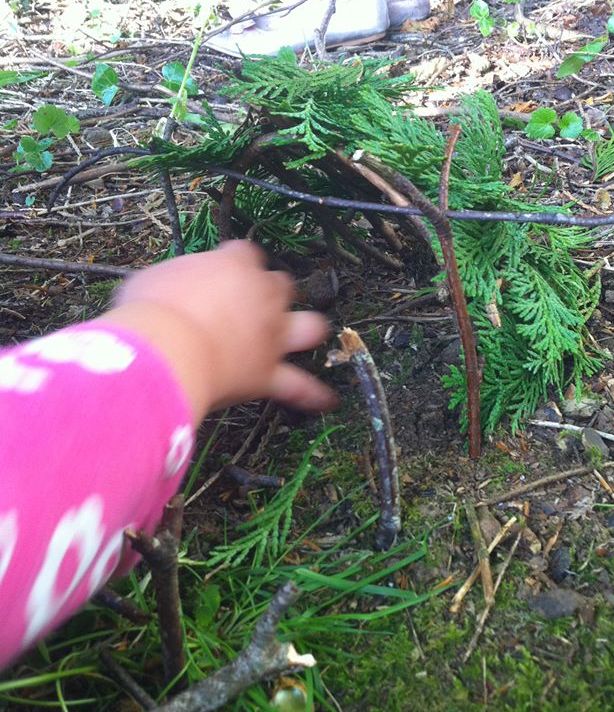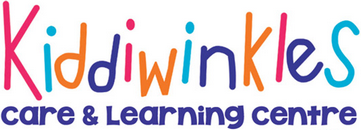Outdoor Learning

What is it like to be a child outdoors?
“Watch young children as it begins to snow or as they play in a pile of leaves. You’ll witness an abundance of exuberance and joy. You’ll see children wholly engaged in the now, and you’ll find them responding with their whole bodies. They’ll laugh, dance, run, listen, and perhaps even taste.
Adults, on the other hand, are more likely to respond with thoughts about what comes next and will spend little time immersing themselves in the moment and in the sensory experiences of what is happening around them. Adults see the snow and think of clearing the paths or become anxious about driving on icy roads. They see the leaves and think of all the raking they’ll have to do.”
Ruth Wilson (Exchange 2010)
Adults who are willing to explore and have a personal sense of wonder are better able to engage children in their natural world.

Why is it so important that our children play outdoors?
Emotionally
Children need time and space to be quiet, daydream, to get excited, to be loud, and to try new things. Children have more freedom outdoors to be themselves.
Quiet children can often find their voice and feel more confident and able to express themselves more freely. Outdoor play helps to develop children’s confidence, perseverance, resilience, creativity and decision making skills. They are encouraged to take risks, to discover their own limits and to learn how to manage the risk. Managing risk encourages children to “have a go” and test their own boundaries without fear of failure. Playing in nature reduces stress levels and has a calming effect.
Socially
Children learn to be more cooperative and tolerant of others. They learn to work together on projects and real tasks that require real questions and real collaboration. Children tend to have more freedom and are trusted to do things by themselves. Adults respect the fact that children do sometimes like to be on their own or be with and learn from other children.
Intellectually
Children learn to problem solve around real experiences. They are exposed to a rich variety of sensory information that changes on a daily and hourly basis. Think about how children are fascinated by their shadows - where they come from and even more intriguing where did they go?
Children have natural opportunity to observe, investigate, ask questions and hypothesize. They make their own connections as well as learn new skills and knowledge.
They learn to respect self, nature and community.
Physically
Children learn about the world around them through movement. Young children need to twist, turn, spin, roll, swing, rock, jump, bounce, fall, slide, and move fast in order to help develop their sense of balance and co-ordination. The outdoor environment is very rich in potential for supporting natural movements that increase children’s strength, muscular control body and spatial awareness.
And best of all, when we go outside we feel good!
Well-being, fitness and health are so important that we simply cannot afford not to provide the children the opportunity to play, develop and learn outdoors. A little dirt can actually build up an immune system and outdoor play reduces the likelihood of near sightedness.

What should be outdoors?
Good outdoor play and learning comes from making the most of what is naturally there combined with open-ended play resources that are non prescriptive and can be used in an imaginative way. It is important that children are given an opportunity to improvise and use natural materials to fit the play that they are working through at the time, rather than the play materials dictating the play. All too often we feel compelled to buy “toys” when all the children actually need is the “box’! Children will happily use the logs, stones and leaves to be the tea set or to be the money to go shopping.
Role of the adult
Adults need to be enthusiastic about being outdoors and put the needs of children first!
The relationship between adult and child changes when outdoors. Adults are more inclined to give children the freedom, space and time to explore, play and learn. There is a greater need for sensitive interactions from adults where they listen to children and support their learning without intruding on children’s natural explorations.
Older children tell us that they love the freedom to be themselves and to be viewed as “being responsible” and able to take control and manage their own learning.
There is nothing more wonderful for a young child than to be able to follow their grandfather (or someone close to them) with a bucket to feed the cows and pretend to be a farmer too! Or to brush up the leaves with the yard brush! Young children love to do “real things”.
Our job is to support these rich experiences by providing language and materials to extend learning.
Clothing and Climate
Effective clothing is the most important piece of kit you can have to sustain outdoor play.
Adults and children need to be comfortable, warm and dry.
Layers give you control over your temperature. The layer closest to your skin should wick moisture away. Mid layers for warmth and outer layer to waterproof.
Insulated hats and mittens maintain heat better than caps and gloves.
And lastly warm socks and wellies.

